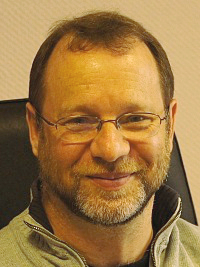Fall 2017 Joint CSC@USC/CommNetS-MHI Seminar Series
 |
Peter Schmid,
Imperial College, London
|
Abstract
In recent years, PDE-constrained optimization has become an effective and efficient tool in the analysis of complex fluid systems. Inherent stability, receptivity to external or internal forcing, or sensitivity to uncertainties or imperfections of fluid systems can be treated within this approach. We will present a computational framework based on this concept and demonstrate its ability to extract relevant information from numerical simulations, with examples from aeroacoustics, inertial mixing, roughness-induced receptivity, and turbomachinery cascades.
We will also discuss the reformulation of the PDE-constrained into a data-constrained framework and show preliminary steps in the analysis of fluid systems based on data only. We will present work in progress on phase-space clustering, data assimilation, and dynamic observers to detect and describe relevant mechanisms and coherent structures in data sequences.
Biosketch
Peter Schmid holds a Chair Professorship of Applied Mathematics and Mathematical Physics in the Department of Mathematics at Imperial College, London. Before joining the department in 2013, he held a position of research director (DR2) with the French National Research Agency (CNRS) and a professorship (PCC) at the Ecole Polytechnique in France, from 2005 to 2014. Before then, he was a faculty member in Applied Mathematics at the University of Washington in Seattle, WA (from 1993 to 2005).
Professor Schmid is a Fellow of the American Physical Society and a member of the editorial board of the Physical Review Fluids. He received his PhD in Mathematics in 1993 from the Massachusetts Institute of Technology and his Engineer's Degree in Aerospace Engineering from the Technical University Munich. His research lies in the area of computational fluid mechanics, with emphasis on stability theory, receptivity theory, flow control, model reduction, and system identification. He is also interested in methods for quantitative flow analysis for numerical and experimental data.
